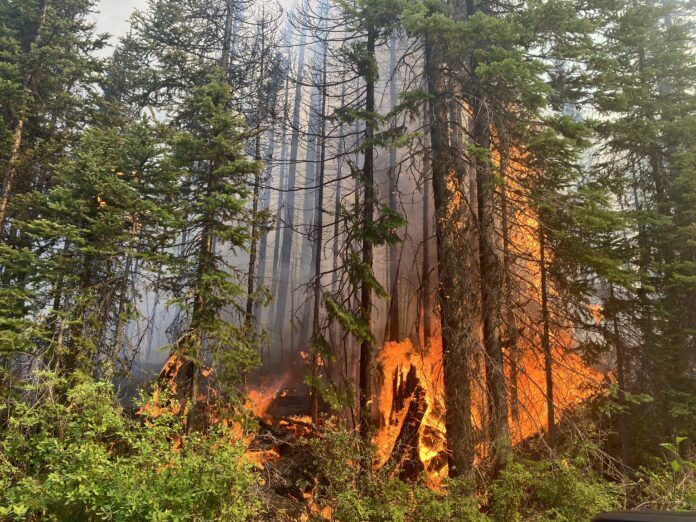Environment and Climate Change Canada says they’re continuing to predict a wildfire season that could equal or exceed what we saw last year.
Meteorologists continue to predict weather for spring and summer which could lead to further droughts and with conditions brought on by El Nino they add it could pose a significant increase to the risk of wildfires.
“Drought conditions are expected to persist in high-risk regions in May, including the southern regions of the prairies and western provinces,” they say in a media release. “We’re forecasting continued above-normal temperatures nationwide for the spring and summer period.
“Such conditions exacerbate the risk and intensity of both natural and human-caused wildfires.”
Minister of energy and natural resources Jonathan Wilkinson says additional funding to expand the current FireSmart program is one step towards mitigating risk.
“Funding in the amount of $1.2 million is an investment that builds on hundreds of millions of dollars we have invested in the past two years towards equipment and training for firefighters,” he says.
Coastal Fire information officer Jade Richardson says equipment and training is paramount to make sure responders are up-to-date and ready for the season, but to ensure fires don’t spread and get out of control, Mother Nature needs to do her part.
“What is really important, in terms of the ability for fires to spread and act volatile, is we need widespread and continuous spring rain,” she says. “That will help alleviate the long-term drought, and impact fire season.
“Rainfall in June is key.”
Richardson says this year they’re predicting to have the staff, and training, in place to deal with fires as they pop up across the province, and this will aid to mitigate and reduce response times.
“Training of new, and returning staff is currently underway, and got going this spring across the province,” she says. “We’ve had very good return rates this season, this means knowledge and experience stays in each region and helps support response efforts.”
She adds the public can do their part to support responders by observing local alerts and bylaws when it comes to restrictions in their region.
“I think the public does a really good job at being aware of what’s going on and following regulations where they can,” Richardson says. “We really appreciate that partnership with the public, and their dedication to following the rules and regulations.”
According to the federal government, emergencies are managed at the local level first, and municipalities are responsible to request help from the province, and if they can’t handle it provincial government can request help from the feds.
The federal government says on average disasters are costing Canadian households an average of $720 per year and is expected to rise around $2,000 per year by 2050.
According to Environment and Climate Change Canada severe weather has caused over $3.1 billion in damages last year.




